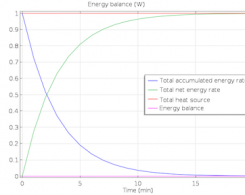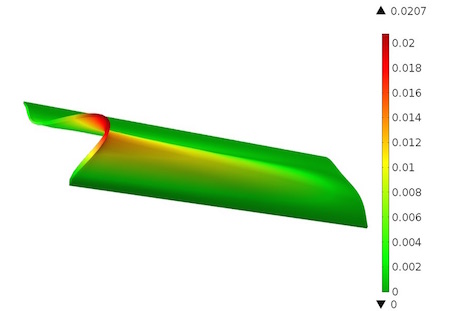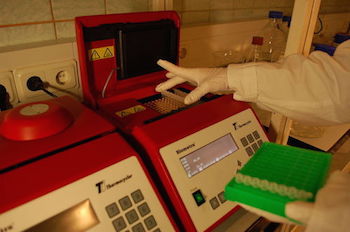Fluid & Heat Blog Posts

Methods for Evaluating Mass and Energy Conservation
Ever wonder how to compute the mass conservation of a fluid flow simulation, or the energy balance of a conjugate heat transfer simulation? If so, keep reading >>

Improving Nuclear Reactor Designs with Simulation
Take a look inside the dynamics of a nuclear reactor — and then see how you can use multiphysics simulation to improve their design.

Nestlé Sweetens the Candy Production Process with Simulation
Question: How does a well-known candy company ensure that each of their signature chocolate bars has the same consistency, texture, and taste? Answer: Fluid flow simulation!

Evolving into a Better Design: Humans and Technology as One
Read about how the concept of constructal law applies to the joint evolution of humans and technology in this blog post about a keynote talk from the Conference of the Academia Europaea 2015.
Simulating Viscous Heating in a Fluid Damper
Fluid dampers are able to dissipate mechanical energy into heat through a process called viscous heating. You can simulate this process to optimize your fluid damper designs.

How to Improve Your Paddle Stroke with Simulation
To take a closer look at a paddle stroke, for activities like canoeing and dragon boat racing, we set up a 2D model in COMSOL Multiphysics® and visualize the flow pattern around the paddle blade.

Focusing on an Electrowetting Lens
Simulation can be used to test different viscosity values and analyze the physics of electrowetting lenses, such as those used to change the view angle of cameras.

Creating Ultrafast Polymerase Chain Reaction Tests with LEDs
Researchers at the University of California, Berkeley, used simulation to develop an LED-based polymerase chain reaction system that shows potential for point-of-care testing. Get the full story.
